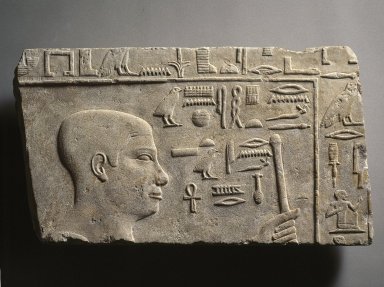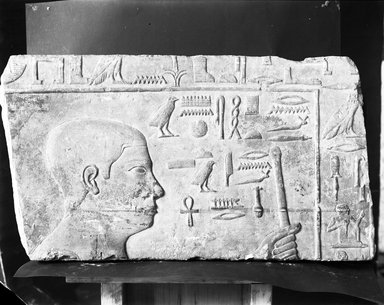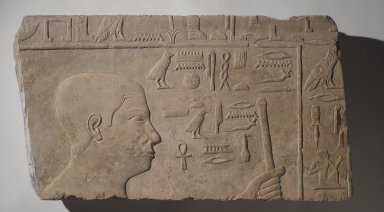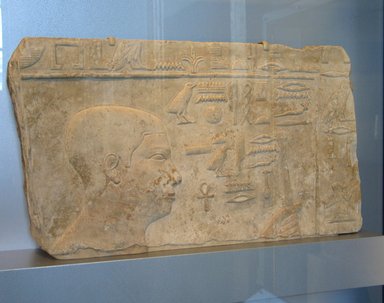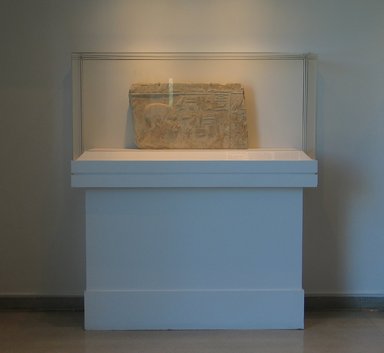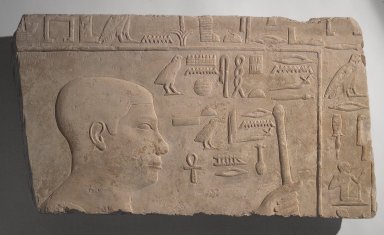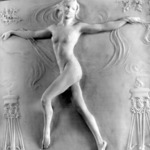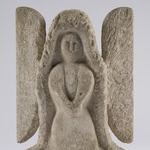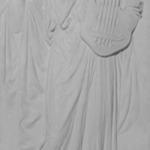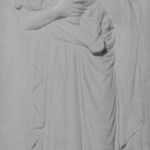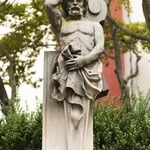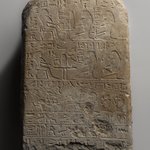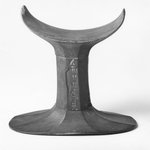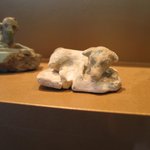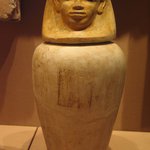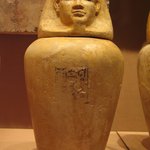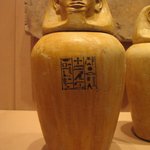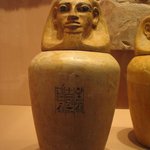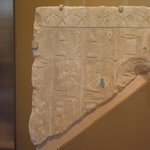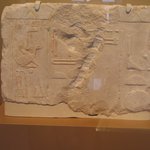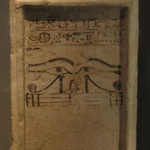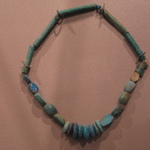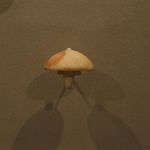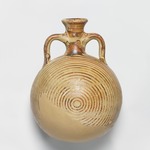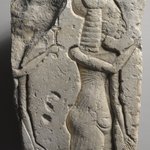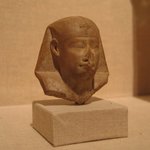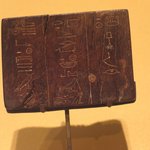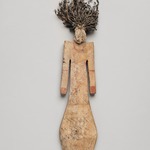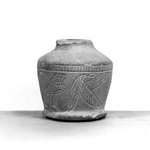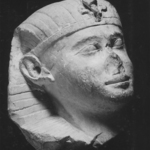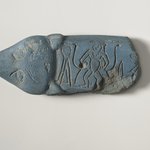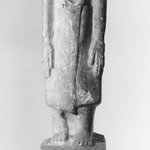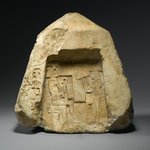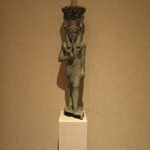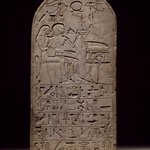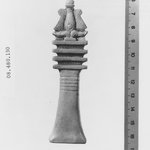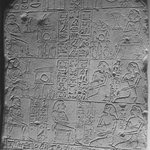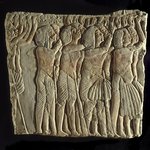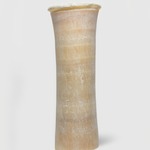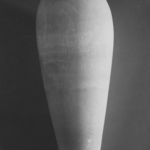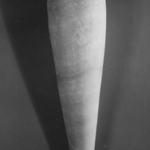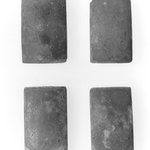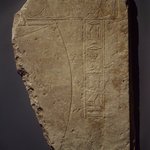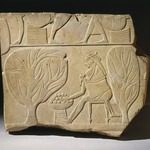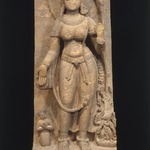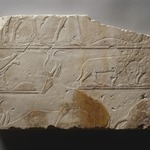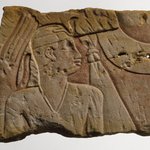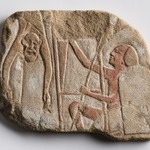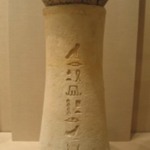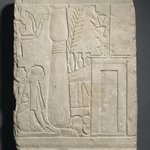Tomb Relief of Itwesh
Egyptian, Classical, Ancient Near Eastern Art
On View: Old Kingdom to 18th Dynasty, Egyptian Galleries, 3rd Floor
Itwesh, more officially called Semenkhu-Ptah, was an important royal official, according to the inscription on this relief fragment from his tomb. The image represents not the living Itwesh but one of his tomb statues. In Egyptian reliefs, living people are generally depicted with both shoulders in a frontal view, while images of statues show just one shoulder in profile. The full chin, receding (slightly retouched) hairline, and walking stick indicate that the statue of Itwesh shown in this relief portrayed him as a stout man in prosperous middle age.
MEDIUM
Limestone
DATES
ca. 2475–2345 B.C.E.
DYNASTY
end of Dynasty 5
PERIOD
Old Kingdom
DIMENSIONS
17 x 5 1/2 x 30 in., 141.5 lb. (43.2 x 14 x 76.2 cm, 64.2kg)
(show scale)
ACCESSION NUMBER
37.25E
CREDIT LINE
Charles Edwin Wilbour Fund
CATALOGUE DESCRIPTION
Oblong fragment of limestone from a tomb decorated with a representation of a statue of the deceased (preserved are the head, shoulder, and hand. In the hand is held a staff): a man named Smnhw-Pth, also called 'Itws. Above and before the figure is an inscription.
Within the borders and before the figure of Itwesh is also an inscription. The relief is bold, a forerunner of the bold relief of Dyn. VI. The hieroglyphs are quite detailed.
Condition: Small chips, some darkening.
CAPTION
Tomb Relief of Itwesh, ca. 2475–2345 B.C.E. Limestone, 17 x 5 1/2 x 30 in., 141.5 lb. (43.2 x 14 x 76.2 cm, 64.2kg). Brooklyn Museum, Charles Edwin Wilbour Fund, 37.25E. Creative Commons-BY (Photo: Brooklyn Museum, 37.25E_SL1.jpg)
IMAGE
overall, 37.25E_SL1.jpg. Brooklyn Museum photograph
"CUR" at the beginning of an image file name means that the image was created by a curatorial staff member. These study images may be digital point-and-shoot photographs, when we don\'t yet have high-quality studio photography, or they may be scans of older negatives, slides, or photographic prints, providing historical documentation of the object.
RIGHTS STATEMENT
Creative Commons-BY
You may download and use Brooklyn Museum images of this three-dimensional work in accordance with a
Creative Commons license. Fair use, as understood under the United States Copyright Act, may also apply.
Please include caption information from this page and credit the Brooklyn Museum. If you need a high resolution file, please fill out our online
application form (charges apply).
For further information about copyright, we recommend resources at the
United States Library of Congress,
Cornell University,
Copyright and Cultural Institutions: Guidelines for U.S. Libraries, Archives, and Museums, and
Copyright Watch.
For more information about the Museum's rights project, including how rights types are assigned, please see our
blog posts on copyright.
If you have any information regarding this work and rights to it, please contact
copyright@brooklynmuseum.org.
RECORD COMPLETENESS
Not every record you will find here is complete. More information is available for some works than for others, and some entries have been updated more recently. Records are frequently reviewed and revised, and
we welcome any additional information you might have.
Do you know what this symbol means?
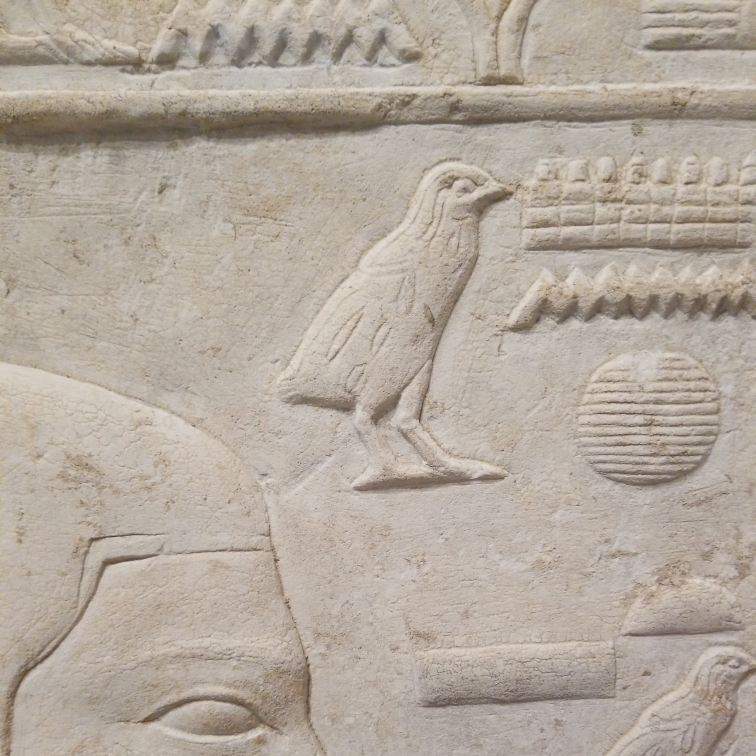
I do! I don't know all hieroglyphs, but this one, the quail chick, is a very common one! It stands for w or u sound. This sign can also tell us that this inscription is meant to be read from right to left because you always read into the faces of people and animals.
